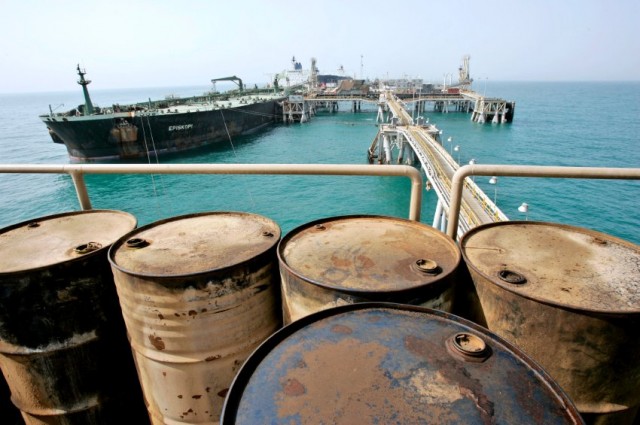by Sara Vakhshouri
Sanctions against Iran by the European Union and the United States, which aim to change Iran’s attitude toward its nuclear program, have increased pressure on its oil export and revenue. This resulted in the reduction of Iran’s oil exports from 2.2 million barrels per day (bpd) in late 2011 to around between 900 thousand to slightly above 1 million bpd until October 2012. On 30 January 2013, Reuters reported that Iran’s crude oil exports hit its highest level in December, at around 1.4 million bpd since EU sanctions took effect last July. What was the reason for this sudden hike?
Seasonal Demand
Winter and summer months traditionally mark peaks in global fuel demand. The cold weather during November and December, compared to September and October, usually creates higher energy demand and consumption. As expected, heating fuel consumption increased during the last two months of 2012, particularly in the US, Japan and other members of the Organisation for Economic Co-operation and Development (OECD), due to colder than normal weather conditions. According to the Energy Information Administration (EIA), the global demand for liquid fuels surpassed production in November and December 2012 due to seasonal increases in consumption. This caused a 1.4 million bpd draw from the global oil stocks. The average global demand for liquid fuels in November and December 2012 was estimated at around 90.2 million bpd, or about 0.9 million bpd higher than the consumption of September and October. However, the global supply outside of Iran was about 86.7 million bpd during this period.
Easing of Shipping Restrictions
Iran has increased its shipping capacity by purchasing super tankers from China. It also decreased its oil production, which eased the country’s shipping capacity. Beginning with the EU oil embargo in July 2012, Iran had to use some of its tanker capacity to store its extra production while searching for buyers. After it made an adjustment between its production, domestic consumption and average monthly export, this shipping capacity was free to transport crude oil. Increases in Iran’s tanker capacity allowed Iran and its customers to skirt the EU ban on tanker insurance. Iranian tankers could, in some degree, transfer oil to its customers. Market data suggest that China, Iran’s biggest oil customer, imported 593,400 bpd of oil in December. According to Chinese officials, an easing of shipping delays was the reason behind this increase. This could suggest that some of this amount might have been from purchases made in previous months that reached China with a delay.
US Waivers
The US State Department grants 180-day waivers on Iran sanctions to countries that prove they have reduced their Iranian purchases. State Department officials, though, have not insisted on any specific percentages for these waivers. Countries are expected to reduce the average amount of their purchases from Iran compared to previous purchases. These countries can adjust their purchase amount from Iran based on their monthly demand and the available supply in the market. This means they can increase their purchase of oil during high demand season and adjust it during the months when demand is relatively lower.
Senators Robert Menendez, an architect of US sanctions legislation, and Mark Kirk, have urged President Obama to require oil importers to reduce purchases by 18 percent or more to qualify for further waivers. Iranian oil customers are expected to maintain the average of their purchase from Iran at around at least 18 to 20 percent lower than pre-sanctions purchases during each period of 180 days in order to have their waivers renewed. We are therefore expecting the average Iranian oil exports to remain at around 1.1-1.2 million bpd throughout 2013.





